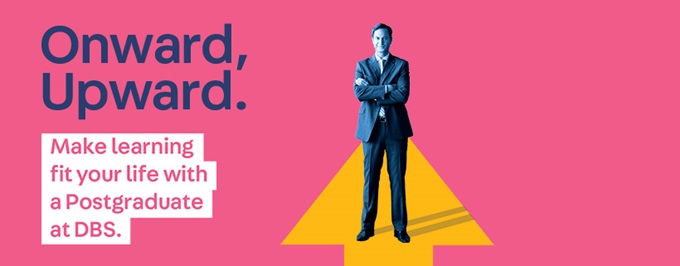Type: International, Postgraduate Programmes
Mode: Part-Time, Full-Time
View Course
Type: Postgraduate Programmes, International
Mode: Part-Time, Full-Time
View Course
Type: Postgraduate Programmes
Mode: Part-Time
View Course
Type: Postgraduate Programmes
Mode: Part-Time
View Course
Type: Postgraduate Programmes, International
Mode: Part-Time, Full-Time
View Course
Type: International, Postgraduate Programmes
Mode: Part-Time, Full-Time
View Course
Type: International, Postgraduate Programmes
Mode: Part-Time, Full-Time
View Course
Type: International, Postgraduate Programmes
Mode: Part-Time, Full-Time
View Course
Type: International, Postgraduate Programmes
Mode: Part-Time, Full-Time
View Course
Type: International, Postgraduate Programmes
Mode: Part-Time, Full-Time
View Course
Type: International, Postgraduate Programmes
Mode: Part-Time, Full-Time
View Course
Type: International, Postgraduate Programmes
Mode: Part-Time, Full-Time
View Course
Type: International, Postgraduate Programmes
Mode: Part-Time, Full-Time
View Course
Type: Postgraduate Programmes, International
Mode: Full-Time, Part-Time
View Course
Type: Postgraduate Programmes, International
Mode: Full-Time, Part-Time
View Course
Type: International, Postgraduate Programmes
Mode: Part-Time, Full-Time
View Course
Type: Postgraduate Programmes, International
Mode: Full-Time, Part-Time
View Course
Type: Postgraduate Programmes, International
Mode: Part-Time, Full-Time
View Course
Type: International, Postgraduate Programmes
Mode: Part-Time, Full-Time
View Course
Type: Postgraduate Programmes, International
Mode: Full-Time, Part-Time
View Course
Type: International, Postgraduate Programmes
Mode: Part-Time, Full-Time
View Course
Type: International, Postgraduate Programmes
Mode: Part-Time, Full-Time
View Course
Type: International, Postgraduate Programmes
Mode: Part-Time, Full-Time
View Course
Type: Postgraduate Programmes, International
Mode: Part-Time, Full-Time
View Course
Type: Postgraduate Programmes, International
Mode: Part-Time, Full-Time
View Course
Type: Postgraduate Programmes, International
Mode: Part-Time, Full-Time
View Course
Type: International, Postgraduate Programmes
Mode: Full-Time, Part-Time
View Course
Type: Postgraduate Programmes, International
Mode: Part-Time, Full-Time
View Course
Type: Postgraduate Programmes, International
Mode: Part-Time, Full-Time
View Course
Type: Postgraduate Programmes
Mode: Part-Time, Full-Time
View Course
Type: International, Postgraduate Programmes
Mode: Part-Time, Full-Time
View Course
Type: Postgraduate Programmes, International
Mode: Part-Time, Full-Time
View Course
Type: Postgraduate Programmes, International
Mode: Full-Time
View Course
Type: Postgraduate Programmes
Mode: Part-Time
View Course
Type: Postgraduate Programmes, International
Mode: Full-Time, Part-Time
View Course
Type: Postgraduate Programmes, International
Mode: Full-Time
View Course
Type: International, Postgraduate Programmes
Mode: Part-Time, Full-Time
View Course
Type: Postgraduate Programmes, International
Mode: Part-Time, Full-Time
View Course
Type: Postgraduate Programmes, International
Mode: Part-Time, Full-Time
View Course
Postgraduate Courses  Join us for our upcoming Open Evening:
Join us for our upcoming Open Evening:
- Online - Tuesday, May 14th, 5pm-6:30pm (GMT)
Register here.
Recent additions to the programme offerings include: Master of Science (MSc) in Financial Technology, Master of Science (MSc) in Digital Marketing, Master of Science (MSc) in Data Analytics, Higher Diploma in Financial Technology, Master of Science (MSc) in Applied Psychology and Master of Science (MSc) Information and Library Management.
Other offerings include Master of Arts (MA) in Addiction Studies, Master of Arts (MA) in Psychoanalytic Psychotherapy (APPI recognised), Master of Arts (MA) in Psychotherapy, Master of Business Administration (MBA) (with streams), Master of Science (MSc) in Information Systems with Computing, Master of Science (MSc) in Management Practice, Master of Science (MSc) in Marketing, Master of Science (MSc) in Marketing (Digital Media Stream) and MSc in International Accounting & Finance.
View the Postgraduate course brochure here.
Why pursue a Postgraduate Qualification?
-
Promotion opportunities in current role/career enhancement
-
Enhanced job security
-
Improved career and networking prospects
-
To complement your primary degree
-
Change of direction in career
-
Development of transferable skills
-
Further development of your skills and knowledge in a specialist field
-
Opportunity to develop strong analytical, problem solving, presentation, time management and communication skills
-
Academic and personal development at a professional level
-
Worthwhile investment to enhance lifetime career prospects
-
To fulfill personal interests
Why study a Postgraduate course with DBS?
The skills, expertise, and networking opportunities you will gain from studying a master’s degree will be of benefit to you both personally by exploring personal interests, & professionally by expanding networking opportunities & broadening the knowledge base needed to further your career. For more information see our blog post 4 Reasons to Study a Postgrad With DBS.